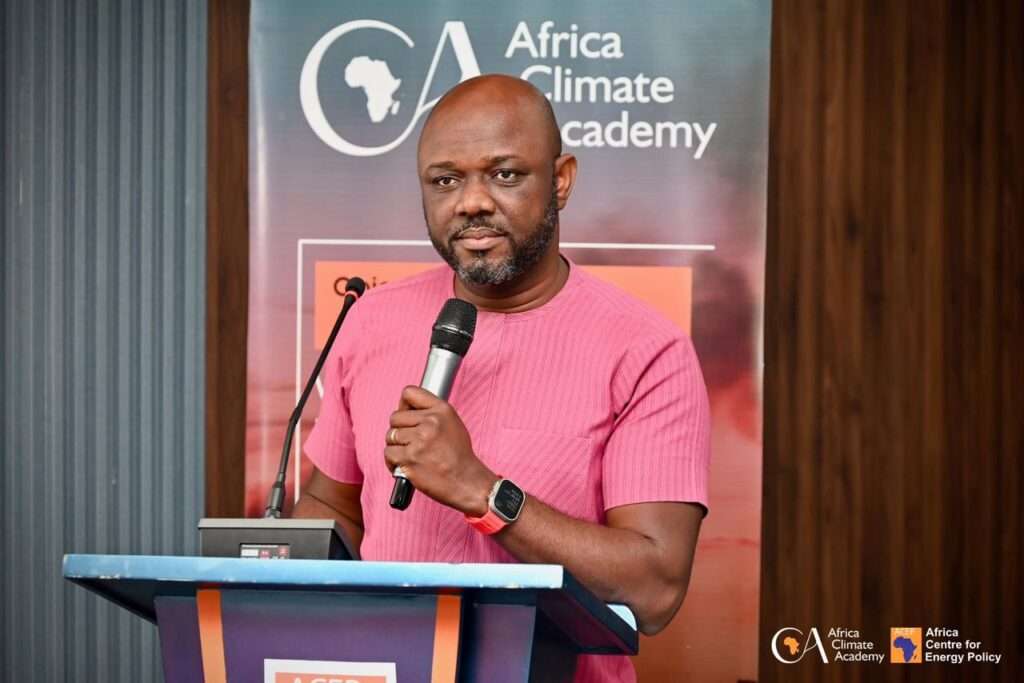Benjamin Boakye, the Executive Director of the Africa Centre for Energy Policy (ACEP), has called for deliberate and actionable policies to accelerate Ghana’s transition to renewable energy.
Speaking during the NorvanReports and Natural Resource Governance Institute (NRGI) X Space discussion titled “Powering Ghana’s Future: Political Promises vs CSO Demands – Are We Ready for the Green Shift?”, Mr. Boakye emphasized the critical need for policies that prioritize job creation, investment security, and local capacity development to ensure sustainable growth within the energy sector.
Mr. Boakye underscored the importance of renewable energy projects as a solution to Ghana’s persistent youth unemployment challenges.
He proposed policies that mandate tangible benefits for young people, suggesting that at least 30% of the economic value derived from solar equipment procurement should directly benefit the youth.
“Empowering young people through renewable energy projects is a sustainable way to tackle unemployment. Let’s ensure they have opportunities to create jobs and participate actively in Ghana’s green transition.”
Benjamin Boakye, the Executive Director of ACEP
Boakye also urged political parties to align their manifestos with actionable plans that address youth unemployment.
He criticized the tendency of political actors to make lofty promises without implementing concrete measures, arguing that a lack of execution weakens trust and impedes progress.
Mr. Boakye raised concerns about Ghana’s over-reliance on imported renewable energy components, including solar panels and batteries. He argued that this dependence not only hampers local economic growth but also diminishes the country’s capacity for innovation and self-reliance.
“While we may not yet have the capacity to manufacture components from scratch, assembling them locally could serve as a starting point,” he explained. This, he added, could foster skills transfer, encourage innovation, and build a more robust renewable energy industry in Ghana.
To achieve this, Mr. Boakye proposed policy incentives that attract investments in local assembly plants and manufacturing facilities, urging the government to take decisive steps toward reducing Ghana’s dependency on imports.
Bridging Policy Gaps in Renewable Energy Planning

The ACEP Executive Director also criticized delays and inconsistencies in Ghana’s renewable energy policies, noting that the country has yet to meet its renewable energy penetration targets.
“Rural communities require off-grid solutions, while urban and industrial areas demand integrated on-grid systems. A one-size-fits-all approach will not work,” Mr. Boakye emphasized.
Mr. Boakye recommended a comprehensive mapping of energy needs and infrastructure requirements to ensure that policies and investments align with the country’s diverse energy landscape.
Such an approach, he argued, would streamline resource allocation and ensure equitable energy distribution. Mr. Boakye expressed dissatisfaction with Ghana’s current local content policies, which he described as superficial.
According to him, the existing framework often focuses on giving Ghanaians token representation in projects rather than fostering genuine local participation and capacity building.
“Local content should not mean just putting a Ghanaian face on a business. It should mean building production capacity within the country,” he said.
Mr. Boakye urged policymakers to prioritize skills transfer, technological innovation, and long-term economic growth as part of a comprehensive local content strategy.
To position Ghana as a leader in renewable energy, Mr. Boakye emphasized the need for investment in research and development (R&D). He highlighted the importance of supporting student-led innovations and creating prototypes that address local energy challenges.
Drawing inspiration from Brazil’s success with ethanol production, Mr. Boakye explained how targeted investments in energy innovation could yield significant economic benefits. “We need to think about producing energy locally, not just importing solutions,” he said.
Mr. Boakye also called on the government to foster partnerships with universities, research institutions, and private companies to drive innovation in the renewable energy sector. According to him, a well-funded R&D ecosystem is crucial to unlocking Ghana’s potential as a renewable energy powerhouse.
The ACEP Executive Director’s call to action is clear: Ghana must transition from promises to implementation. By adopting practical, inclusive, and forward-thinking policies, the country can secure a greener future while fostering economic growth and social equity.
READ ALSO: Somaliland Elects New President Amid Rising Tensions





















